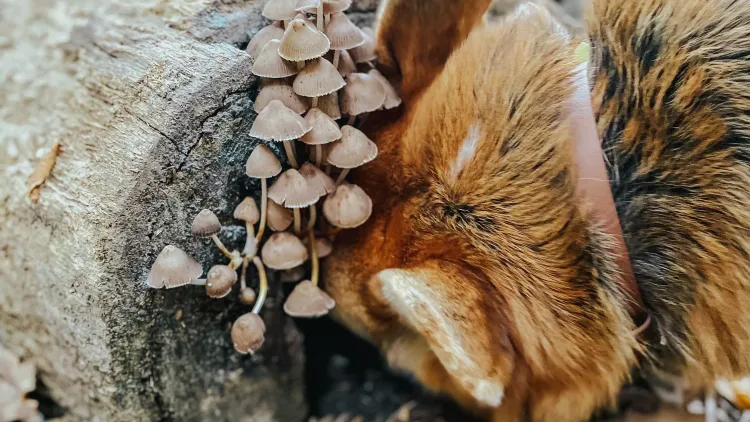The Catnip Phenomenon: Does it Apply to Dogs?

Catnip, the fragrant herb that can send cats into a state of euphoria, is a widely known and used stimulant for feline fun. Many cat owners enjoy seeing their usually composed feline companions prancing, rolling, and generally exhibiting giddy behavior when introduced to this plant. However, dog owners might wonder if this herb, with its enchanting effects on cats, can have a similar impact on their canine friends. This article aims to answer the question: does catnip work on dogs?
What is Catnip?
Catnip, scientifically known as Nepeta cataria, is a member of the mint family. This perennial herb is native to Europe, Asia, and Africa but has since spread around the globe. Catnip gets its feline-attracting power from nepetalactone, an essential oil found within the plant. When inhaled by susceptible cats, this chemical stimulates the sensory neurons leading to the brain, resulting in a variety of behaviors ranging from rolling, rubbing, purring, and jumping to hyperactivity and even aggression.
Catnip and Dogs
While catnip is a powerful stimulant for cats, its effects on dogs are markedly different. Dogs, unlike cats, do not react to nepetalactone. Instead, they are more responsive to a different compound found in catnip called actinidine.
However, it's worth noting that the reaction dogs have to catnip is less intense and more varied than the response cats have. Some dogs might show a mild interest in the plant, often presenting as relaxed or slightly sedated behavior, while others may show no interest at all.
In a study published in the Journal of Small Animal Practice, researchers observed the effects of catnip on a group of dogs. Some dogs showed signs of increased relaxation and decreased agitation. Other dogs, however, had no visible reaction to the catnip, indicating that the effects can vary greatly from dog to dog.
Is Catnip Safe for Dogs?
In general, catnip is safe for dogs to smell, and in small amounts, it's also safe to ingest. Catnip can even be beneficial as it has been reported to have sedative effects, helping dogs with high anxiety levels to relax. However, large amounts can potentially cause mild gastrointestinal upset, so moderation is key.
As with any new addition to a dog's diet or routine, it's always best to consult with a veterinarian before introducing catnip. They can provide guidance based on the individual dog's health history and needs.
Catnip as a Training Aid for Dogs
Despite the mild reaction compared to cats, some dog owners and trainers use catnip as a training aid. It can be used to stuff dog toys, creating an enticing scent that dogs may find interesting. This could be particularly useful for training activities like search and rescue, where dogs need to be motivated by a scent. However, the effectiveness of this method would highly depend on individual dogs and their interest in the scent.
The use of catnip as a training aid for dogs is a less explored territory. However, some dog trainers and owners have found certain applications for this herb due to its unique scent and potential to mildly attract dogs. It's important to note that, like all training aids, the effectiveness of catnip will vary between individual dogs. Here are a few potential ways catnip can be utilized in dog training:
Scent Training: Dogs have an incredible sense of smell - about 10,000 to 100,000 times as acute as humans. This makes them excellent candidates for scent-based work and games. Catnip, with its unique scent, can be a useful tool for scent-discrimination training. By associating the smell of catnip with a particular task or reward, trainers may encourage dogs to find objects or areas infused with the smell. This might be particularly helpful in games, challenges, or professional tasks like search and rescue missions.
Toy Motivation: Another way to use catnip in training involves stuffing dog toys or puzzle feeders with catnip or catnip-infused materials. The unique scent can make the toys more interesting to some dogs, encouraging play and engagement. This could be useful in teaching dogs to focus on appropriate chew items and discourage them from chewing on unwanted objects.
Relaxation and Anxiety Relief: While not directly related to active training, catnip's potential calming effects might be useful in behavior modification training, particularly for anxious dogs. If a dog responds positively to catnip, it could be used as part of a relaxation protocol to help the dog calm down before engaging in training activities. However, more research is needed in this area to fully understand and confirm these potential effects.
Recall Training: For dogs that show a significant interest in the scent of catnip, it could potentially be used as a unique cue in recall training. This would involve pairing the scent of catnip with the act of returning to the handler, and rewarding the dog when it does so. Over time, the dog may begin to associate the smell of catnip with the positive experience of being recalled and rewarded.
Remember, not all dogs will respond to catnip, and for those who do, the response will likely be mild compared to a cat's reaction. Furthermore, excessive ingestion can lead to mild gastrointestinal upset. Always introduce new training aids slowly, monitor your dog's response, and consult with a professional dog trainer or a veterinarian for personalized advice.
Final word
While catnip does not induce the same euphoric reactions in dogs as it does in cats, it can still hold some interest for our canine companions. Whether it's used as a mild relaxant or a unique scent for training purposes, catnip could be a useful tool for dog owners. However, always remember that each dog is different, and what works for one may not work for another. And as always, before introducing any new element into your pet's life, it's wise to seek advice from a veterinarian.
Remember, our pets rely on us for their health and well-being. Understanding their needs and responses to different stimuli, such as catnip, allows us to enrich their lives and deepen the bond we share with them.


